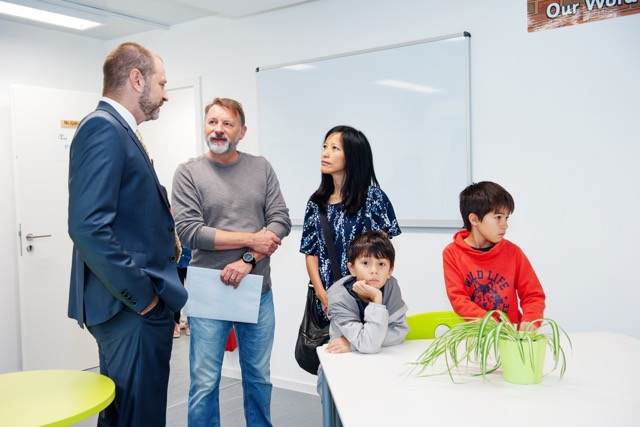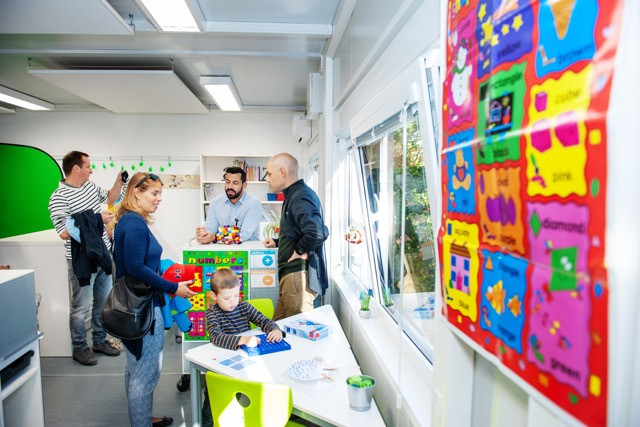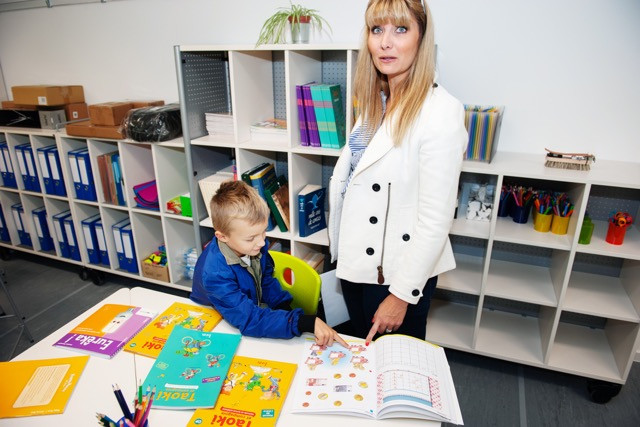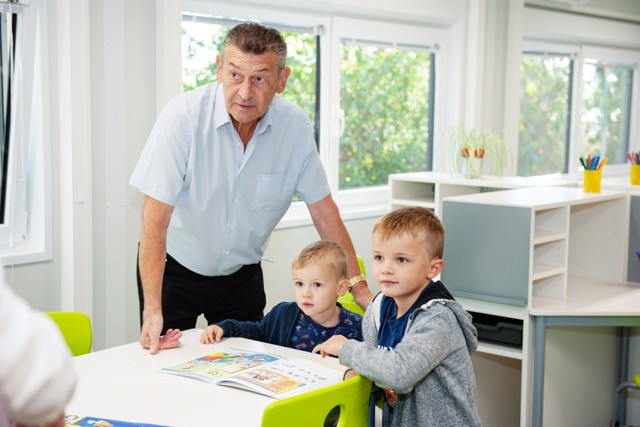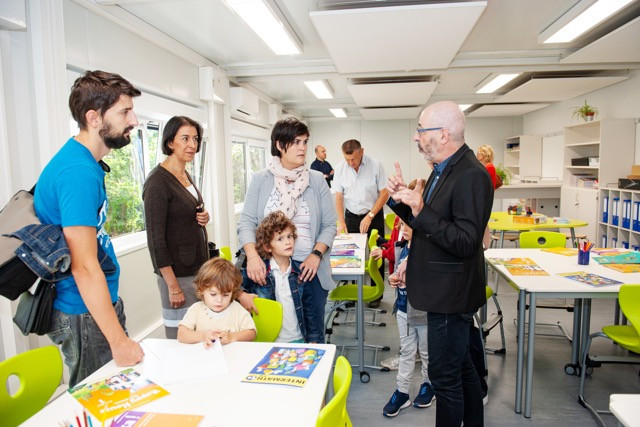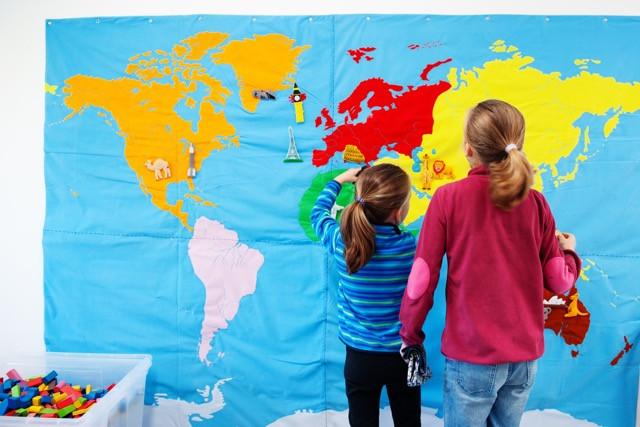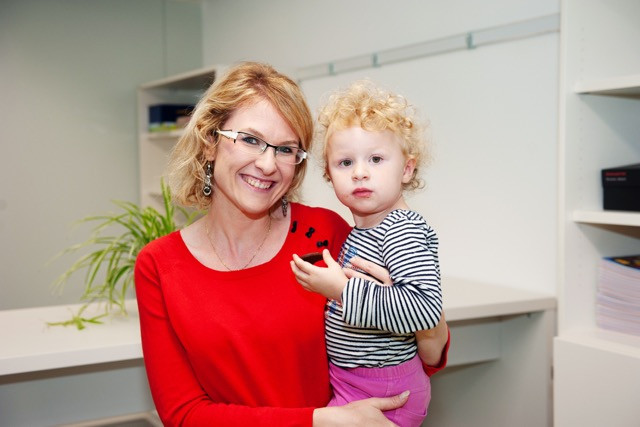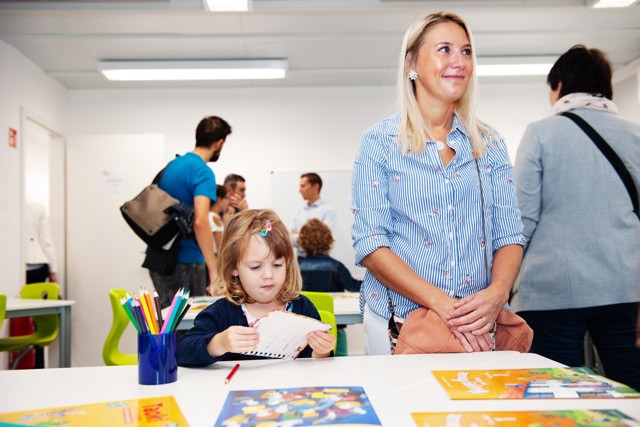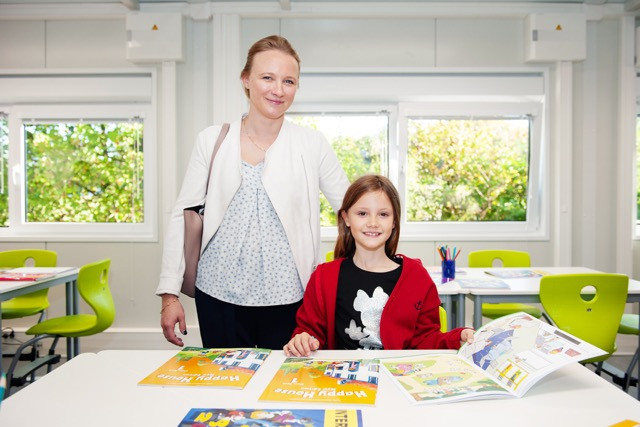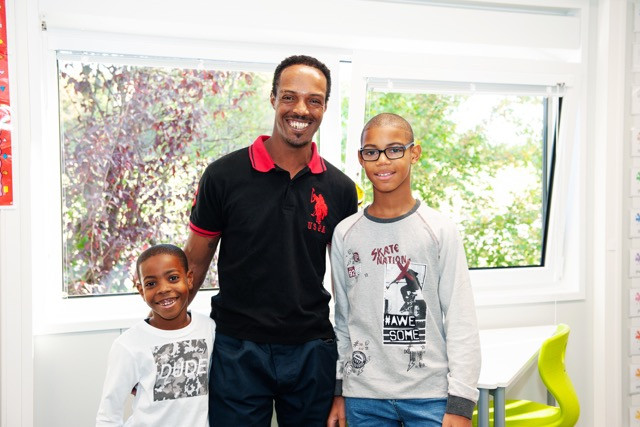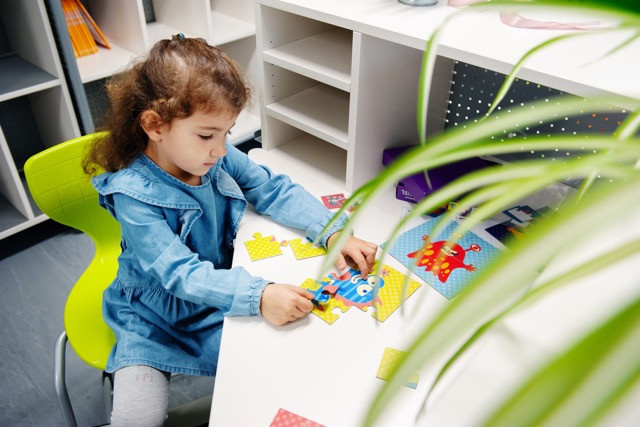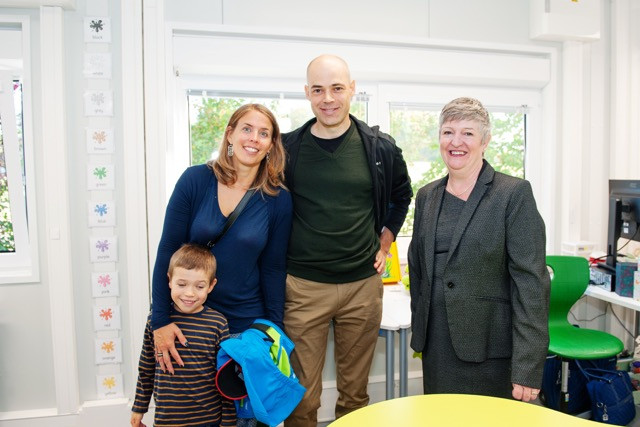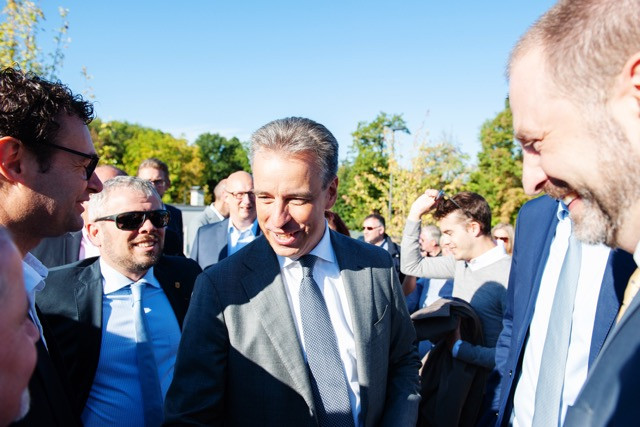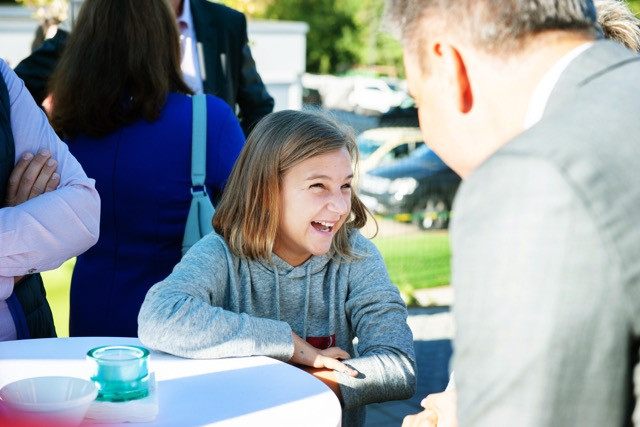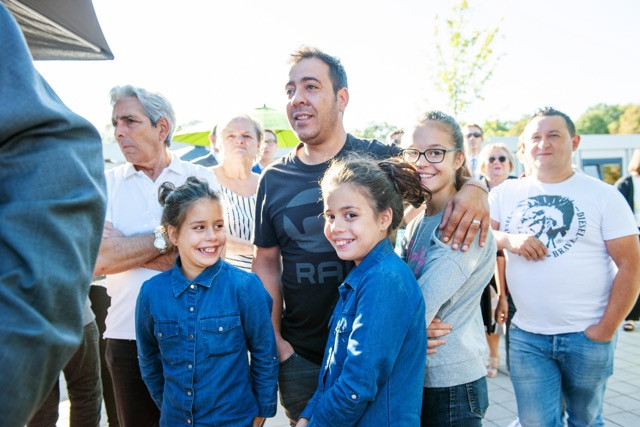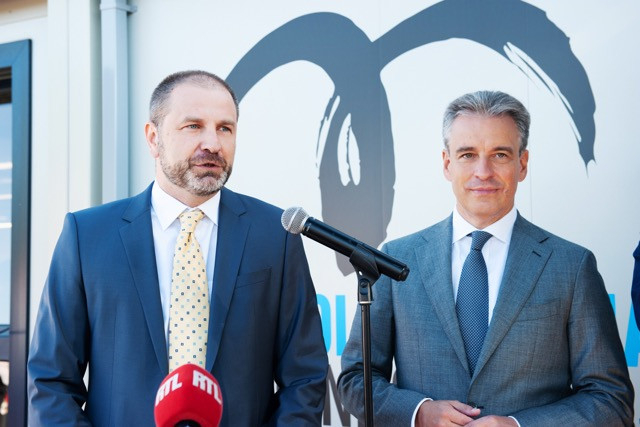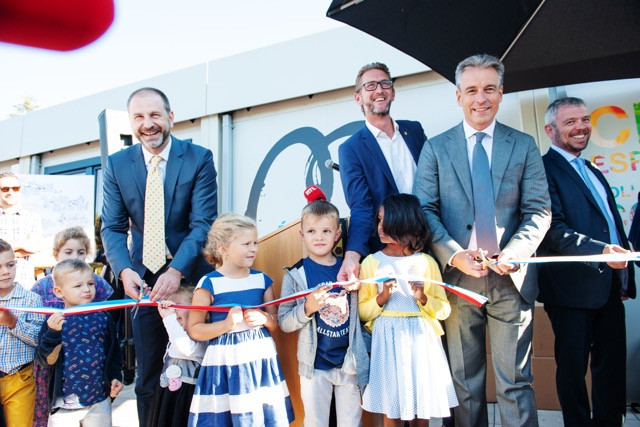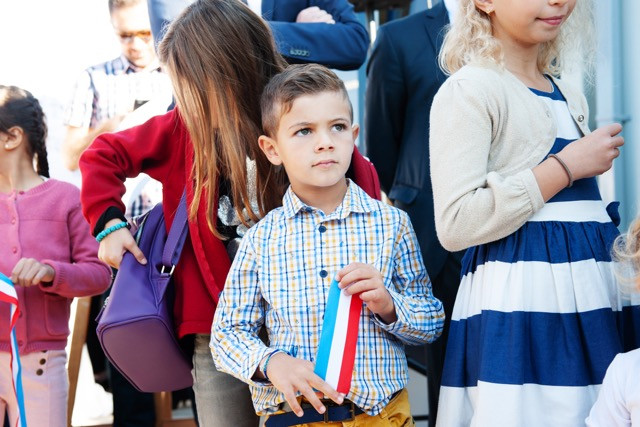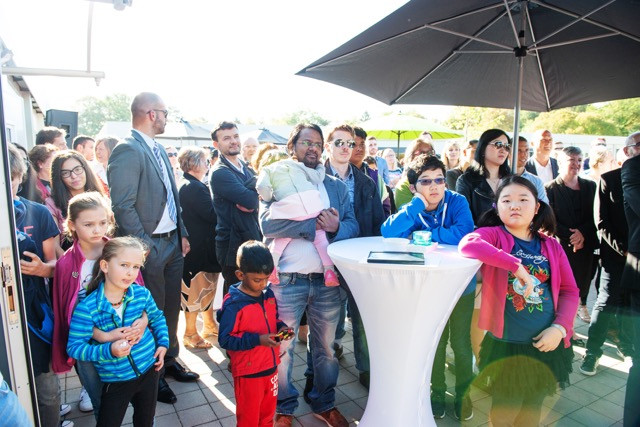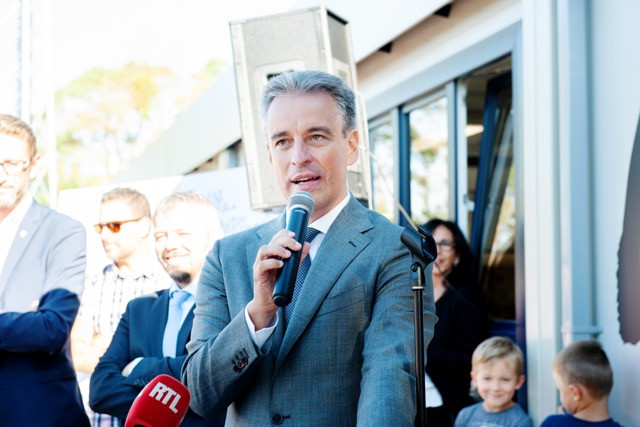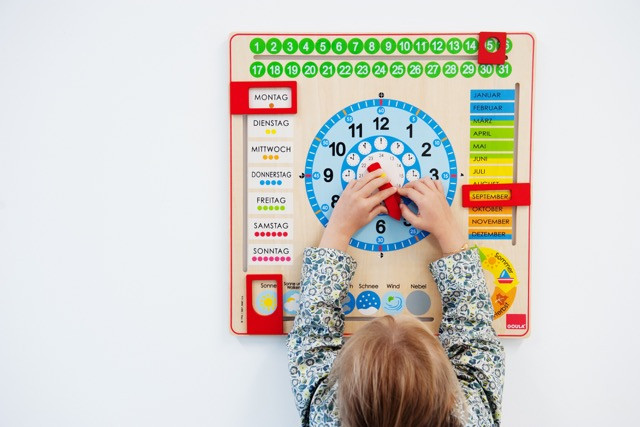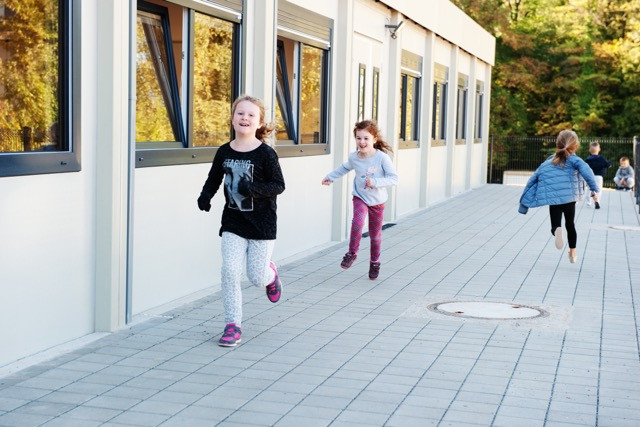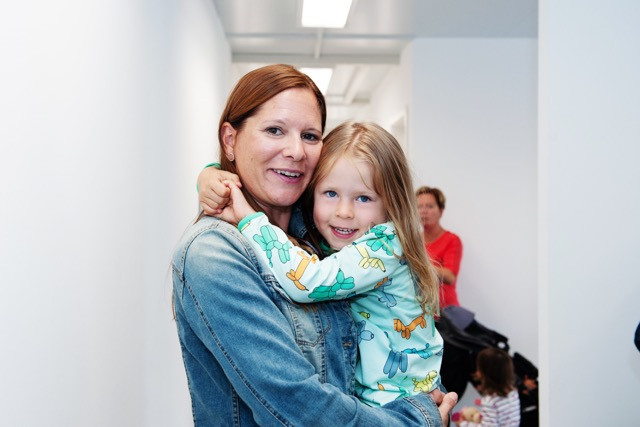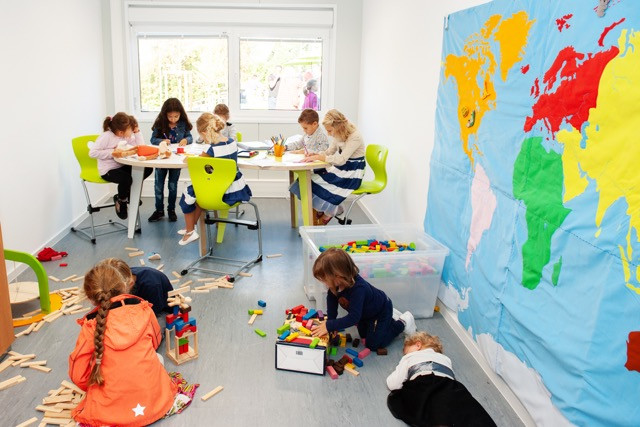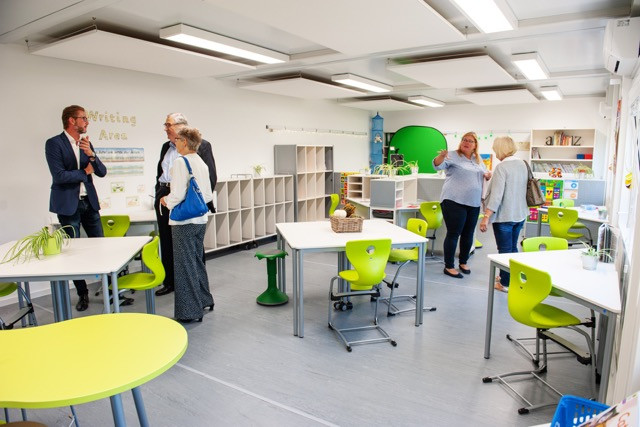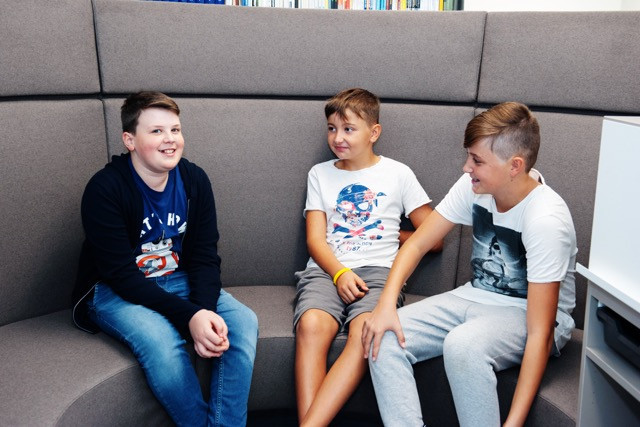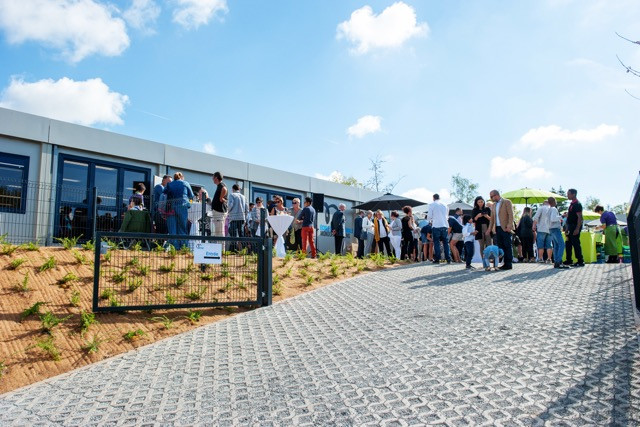For most youngsters the last few days of the summer holidays are precious. So, the idea of going into school before the first day back would not normally be popular. But the first 75 pupils and students at Mondorf-les-Bains’ international school (EIMLB) looked thoroughly excited as they toured the new school building with their parents at the “Come Together” event on 15 September.
“The last weeks have been busy like crazy. I think we’re 95% ready as far as material and equipment is concerned and 150% ready as far as morale is concerned,” school director Camille Weyrich told Delano on Saturday.
EIMLB is one of three state-run international schools to open in Luxembourg for the 2018-2019 term, along with Lënster Lycée in Junglinster and Lycée Edward Steichen in Clervaux, and aims to respond to the growing demand for international education in a country where 46% of the population is foreign.
“We have the most pupils in the French classes at primary and secondary. They are full. There’s still room in the English-speaking classes in primary and secondary,” Weyrich explained of the school, which follows the European School curriculum while offering compulsory Luxembourgish. On 17 September, it opens French and English sections in the first year of primary and, on 18 September in French and English sections in the first year of secondary will start, in order for the school to grow gradually in coming years. The school also includes a German-speaking section in the first year of secondary.
Of the 28 pupils at primary, 10 are in the English stream and in secondary they make up just 11 out of 47.
Autonomous learning
What sets this school apart from the other two is that it was created from scratch, as opposed to introducing language streams in existing schools, which is the case in Junglinster and Clervaux.
For Weyrich, who has taught German for 16 years and was previously the deputy head of the LTPS (nursing school) this was the perfect opportunity to start with a blank slate, adopting a version of the Dalton plan, an educational concept giving students more autonomy over their learning.
“We try to put in action a concept that allows everyone to proceed at their own rhythm,” he said, explaining that during the second period, eventually students will be given the freedom to work on areas in which they need to improve.
On Saturday, education minister Claude Meisch gave each secondary student their own iPads, which will be used as the main interface for e-learning in class.
“We will push all the content on the different topics via the iPad. That gives everyone the possibility to know what will be the course topic for the next weeks. If a teacher is ill or the pupils is ill, it’s not an excuse any longer,” Weyrich said.
In the coming months and years, he added that the school will develop a repository of materials to help push those students who can go further while having appropriate alternatives for those who struggle in a particular topic.
The three international schools opening in September come after the education ministry opened the Differdange Internationale (primary and secondary) School in 2016 and then later an annexe in Esch, and the primary of the Lycée Michel Lucius in 2017. Both offer English sections.
